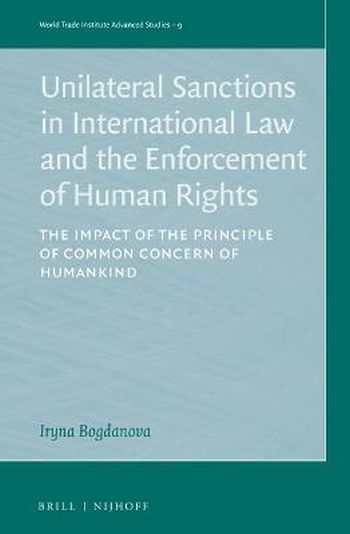
Unilateral Sanctions in International Law and the Enforcement of Human Rights makes a valuable assessment of states' frequent recourse to unilateral economic sanctions against the background of their debated legality. Besides, it examines the potential normative effects of the doctrine of Common Concern of Humankind upon such unilateralism.